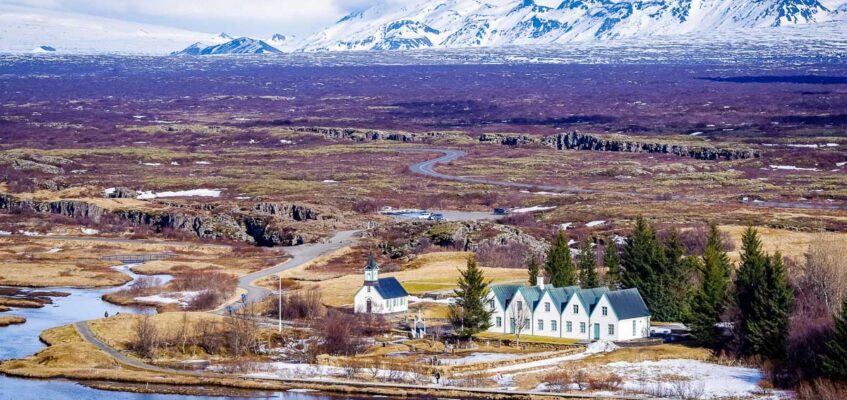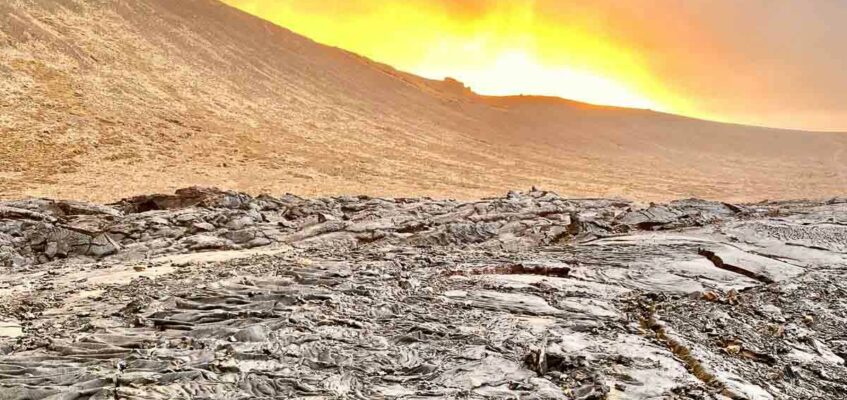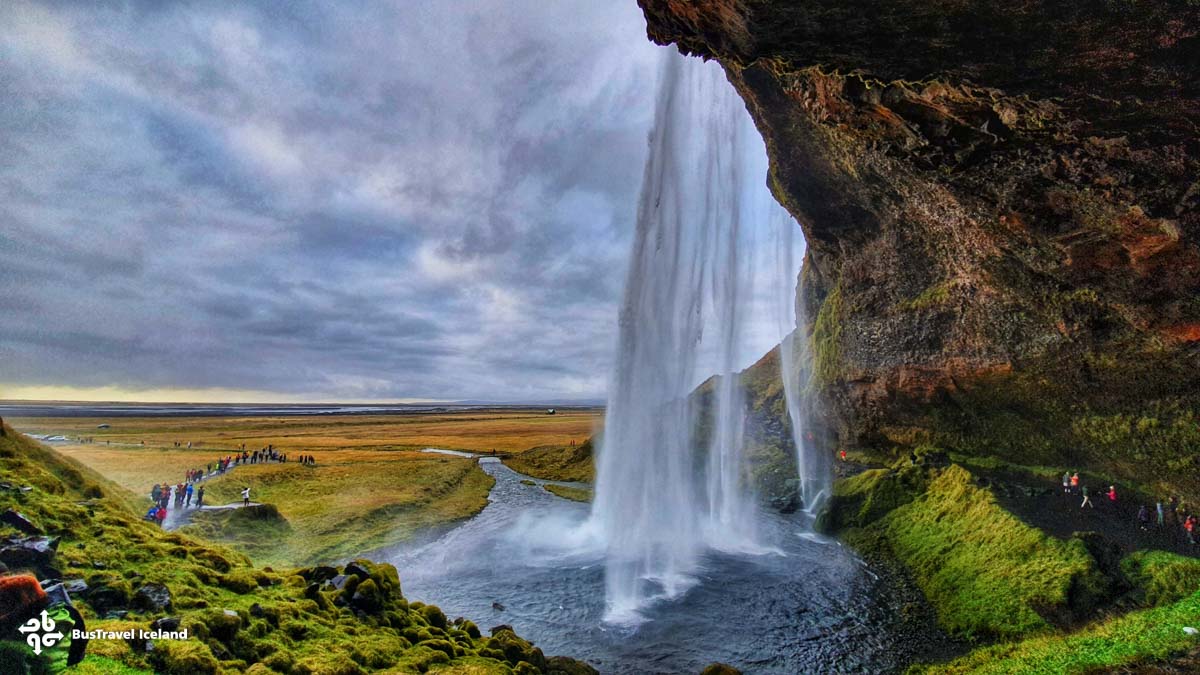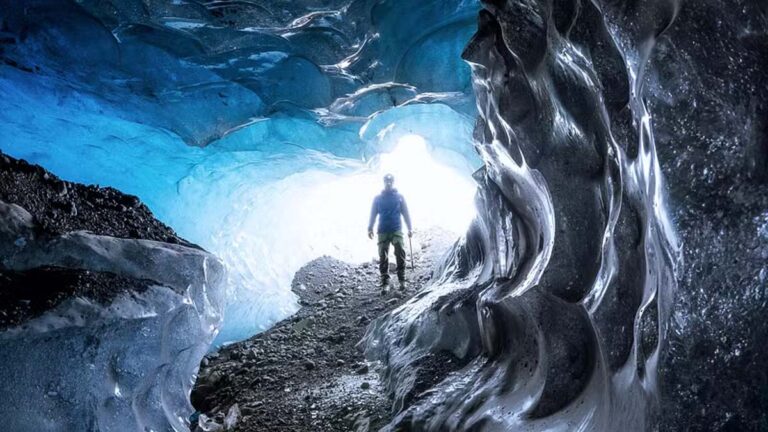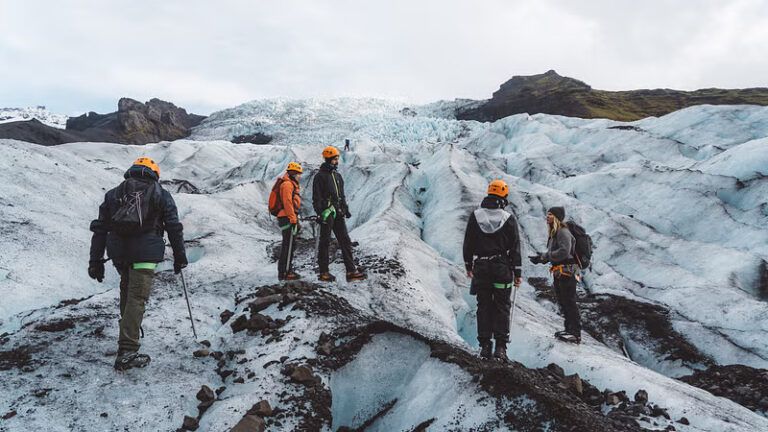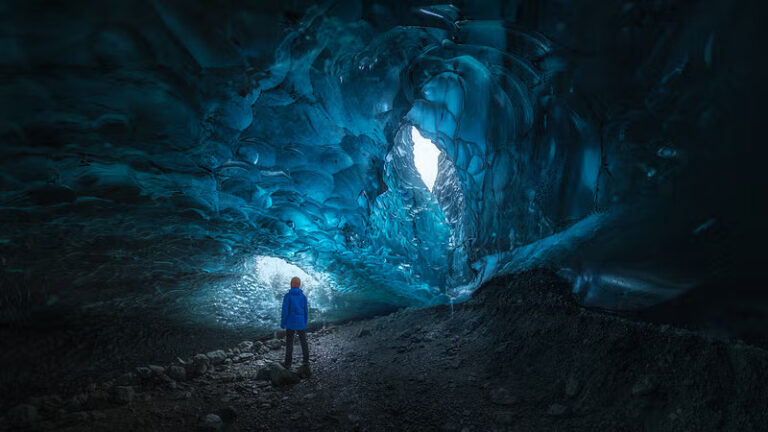Skaftafell Nature Reserve: A Guide to Iceland’s Diverse Landscapes
- South Iceland
- 21 Apr 2023
Skaftafell Nature Reserve in Iceland presents a mesmerizing panorama of natural splendor, with its sprawling glaciers, majestic mountains, verdant valleys, and enchanting waterfalls, all nestled in a vibrant Arctic wilderness abundant with wildlife. Beyond its natural beauty, it's a site of profound cultural importance, making it a must-visit destination in Iceland.

Skaftafell Nature Reserve, a gem in Iceland’s Vatnajökull National Park, offers a captivating display of nature’s wonders. Its expansive glaciers, part of the larger Vatnajökull glacier, create a stunning contrast with the surrounding black sands. The reserve’s towering peaks, including Iceland’s highest, Hvannadalshnúkur, provide a dramatic backdrop. Verdant valleys offer a lush, green oasis amidst the ice, showcasing the area’s diverse flora. The enchanting Svartifoss waterfall, famed for its unique basalt columns, adds to the reserve’s allure.
This area, rich in Arctic wildlife, allows visitors to spot various bird species and even reindeer. The reserve’s cultural significance lies in its historical farming communities and old trade routes, highlighting Iceland’s rich heritage. As such, Skaftafell is not just a showcase of Iceland’s ecological diversity but also a window into its cultural past, making it an essential and informative stop for any visitor to Iceland.

Skaftafell’s Diverse Nature Features
In Skaftafell, you’ll find natural features ranging from the colossal glaciers and mystic ice caves to the diverse flora and fauna, set against a backdrop of powerful waterfalls and majestic mountains.
Glaciers and Ice Caves
Skaftafell’s landscape is dominated by its glaciers, such as Skaftafellsjökull and Skeiðarárjökull, outlets of the vast Vatnajökull ice cap. These icy giants are not only awe-inspiring sights but also host to a network of ice caves that offer a surreal glimpse into a frozen world. There are tours in winter that allow you to safely explore these remarkable glacial structures.

Waterfalls and Rivers
Svartifoss waterfall, famed for its surrounding basalt columns, is among the most iconic waterfalls in Skaftafell. These falls, together with the pristine glacial rivers, shape the terrain and support the park’s dynamic ecosystems.

Mountains and Landscapes
Hvannadalshnúkur, towering as Iceland’s highest peak, standing 2110 m ( 6900 ft) above sea level, is a stunning sight from Skaftafell when the clouds part. It offers climbers thrilling challenges, becoming a coveted goal for mountaineers when conditions are favorable.
Gazing upon it, one is captivated by the stark beauty of the mountains and the ever-changing landscapes, which are continually shaped by the relentless forces of nature and the shifting seasons.

Flora and Fauna
The flora of Skaftafell includes resilient species such as rowan trees and birch, along with delicate yellow saxifrage that add color to the landscape. Among the fauna, you might catch a glimpse of the elusive Arctic foxes. And in the East Iceland region where Skatfafell belongs to, reindeer are often spotted roaming in the untouched wilderness, giving you a glimpse of how wild Iceland’s nature is.

What to Do in Skaftafell Nature Reserve
Skaftafell’s diverse landscapes set up some awesome scenes for adventurous activities and exciting exploring opportunities.
Hiking through Skaftafell in Vatnajökull National Park offers some of the most stunning landscapes and trails in Iceland. It’s one of the locals’ favorite hiking destinations, especially in summer. The nature reserve’s distinct features, from the awe-inspiring Svartifoss Waterfall to the panoramic views of Morsárdalur valley, are accessible through a network of trails designed for various skill levels.
Popular Hiking Trails in Skaftafell
- Svartifoss Waterfall: This trail leads to the iconic waterfall renowned for its basalt column backdrop. Distance: 1.5km one way, Duration: 45 minutes to an hour, Difficulty: Moderate. My Svartifoss’s travel guide talks about the hiking route in detail.
- Morsárdalur Valley: A longer, more challenging hike, offering scenic vistas of the valley. Distance: Various, Duration: 4 to 5 hours, Difficulty: Challenging.
- Kristínartindar Mountain Peaks: For breathtaking panoramic views, this trail is unsurpassed. Distance: 16.7km round-trip, Duration: 6 to 8 hours, Difficulty: Challenging. More info here.
- Skaftafellsjökull Glacier: A shorter hike that brings you close to the glacier’s edge. Distance: 3.7km round-trip, Duration: 1.5 hours, Difficulty: Easy to Moderate.

Guided Tours and Safety
Joining guided tours to explore Skaftafell Nature Reserve is always highly recommended, as Iceland’s nature is famous for its unpredictability. If you like a hiking trip, especially for the more challenging hikes, go with a local guide who knows the way around this region is your best option.
When it comes to glacier hiking and ice caving experience, you need to go with a professional glacier guide, as stepping on a glacier is an exciting yet dangerous activity, furthermore, going with a glacier guide can lead you through the safest paths, while sharing fascinating insights about the glacier’s formation, local geology, and the unique ecosystem. Additionally, they are equipped with essential gear and expertise in navigating the ever-changing glacier terrain.

Participating in a guided tour also allows you to fully immerse yourself in the adventure without the stress of planning and navigation. It’s an unforgettable way to responsibly explore and appreciate the majestic beauty of Iceland’s glaciers.
For a safe and enjoyable expedition:
- Check weather conditions before setting out.
- Dress in layers to adapt to Iceland’s unpredictable weather.
- Ensure you have appropriate hiking boots and gear.
Skaftafell is an adventurer’s paradise, and with the right precautions, your hiking journey will be both thrilling and secure. Book a guided tour to ensure the best possible experience.
Protecting the Environment of Skaftafell
Upon arrival at Keflavik International Airport, many visitors to Iceland take a pledge before stepping into the land of fire and ice. This commitment is designed to raise awareness about minimizing negative impacts on Iceland’s fragile environment, encouraging everyone to be a responsible tourist.
It’s more so when it comes to exploring Skaftafell Nature Reserve.This landscape is a tapestry where each thread – from vegetation to wildlife – is integral to the continuity of the region’s natural heritage.
Vegetation: The park’s flora comprises moss campion, bellflower, and the Arctic willow.
Wildlife: The preservation of wildlife is a key focus, with species such as the Arctic fox and numerous bird populations, including the iconic Golden Plover, calling this park home.
In the heart of Icelandic heritage, Skaftafell Nature Reserve undeniably holds a place of cultural significance. This area serves as a monumental chapter in Iceland’s history, inviting visitors to traverse the same landscapes the ancestors once did.

Planning Your Visit to Skaftafell
When you visit Skaftafell National Park, you’re stepping into a world of natural wonders where preparation is key. From choosing the best season to uncovering local peculiarities, a well-planned visit ensures an enriching experience.
Best Times to Visit Skaftafell
Summer: The ideal time to explore Skaftafell is during the summer months, from June to August. You can expect longer daylight hours and milder weather, perfect for hiking and sightseeing. The park’s Visitors Center is fully operational, and all hiking trails are generally accessible. The GPS coordinates for Skaftafell are 64.0166° N, 16.9666° W, aiding in seamless navigation.
- Climate: Mild with possible rainy days.
- Access: Routes are clear; Route 1 or the Ring Road from Reykjavik is the most convenient path.
Winter: Wintertime offers a starkly different but equally magnificent experience, especially from November to February. You should be prepared for colder temperatures and limited daylight. While some trails may be closed, the unique winter landscapes are unforgettable. Visitors traveling during this season should have winter travel insurance for added safety.
- Camping: Not advised; consider nearby lodging instead.
- Travel: Check for road closures, and always travel with caution.
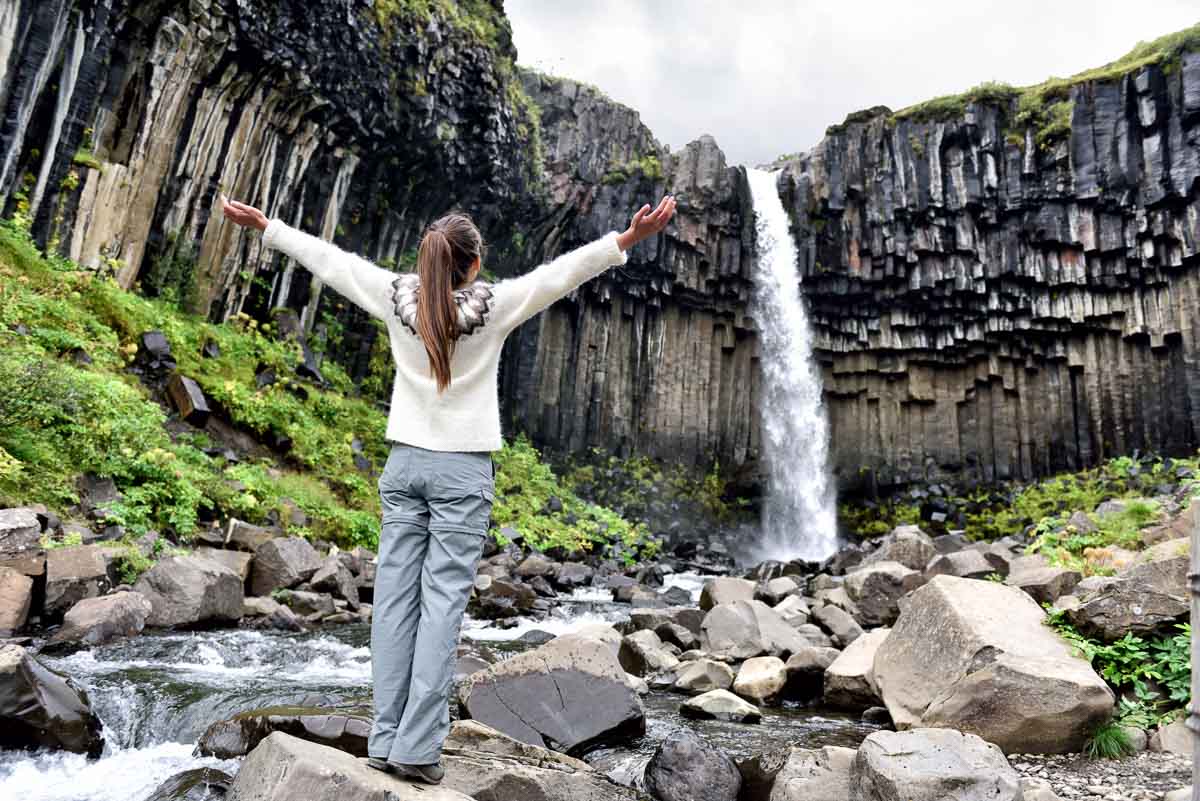
A Few Travel Tips for Skaftafell Exploration
The local community at Skaftafell has been working on improving visitor experience continuously, and the facilities for the nature reserve have become easier to access.
- Skaftafell Visitor Center: In here, you can delve into the park’s history, maps, exhibits, and ask for travel and tour information.
- Camping: Camping in Skaftafell in summer is popular among the locals in Iceland, as there are designated camping sites here, and they are located in the middle of beautiful nature and wonderful views.
How to Get to Skaftafell Nature Reserve
Skaftafell is approximately 330 km (205 miles) away from Reykjavik, the capital of Iceland, and is a 4.5-hour drive one way. If you plan to drive yourself, a one-day trip might be a bit tight on the schedule, so I recommend staying for one night along the South Coast of Iceland, in towns like Vik or Hof. This allows you ample time to explore the place at a better pace, and you can also visit Jokulsarlon Glacier Lagoon and the Diamond Beach.
Joining a guided tour departing from Reykjavik is a popular choice among visitors. These tours will also take you to see some of the most spectacular highlights along the South Coast of Iceland, making your journey even more unforgettable.

Skafrafell’s Cultural Significance
At the Visitor Center, guests can immerse themselves in the culture through an informative Exhibition. The exhibit details Skaftafell’s rich environmental and cultural past, emphasizing its importance to both local and national identity.
One of Skaftafell’s hidden treasures is the Bæjarstaðarskógur forest. In Iceland, the word ‘forest’ is seldom used, as the Arctic flora typically consists of shorter vegetation. This gives rise to a local joke: ‘If you get lost in an Icelandic forest, don’t panic; just stand up.’ The rarity of tall trees in Iceland makes Bæjarstaðarskógur a unique and noteworthy exception.
Bæjarstaðarskógur is one of the few remaining wooded areas in Iceland. This forest embodies the dedication to preserving natural beauty and cultural heritage, highlighting the Icelandic steadfast commitment to conservation. Bæjarstaðarskógur is a leafy testament to the cultural practices of afforestation and reverence for the environment that are central to our ethos.

Situated near the southeast towns of Höfn and Kirkjubæjarklaustur, Skaftafell is a cultural beacon. These towns encapsulate the regional traditions, offering a glimpse into the quiet yet firm pride of the local communities. The inhabitants of these towns preserve our cultural heritage, ensuring the legacy of Skaftafell is not lost to time. Through concerted efforts, the essence of Icelandic culture, manifested in respect for nature and heritage, continues to resonate from the rugged terrain of Skaftafell Nature Reserve.
